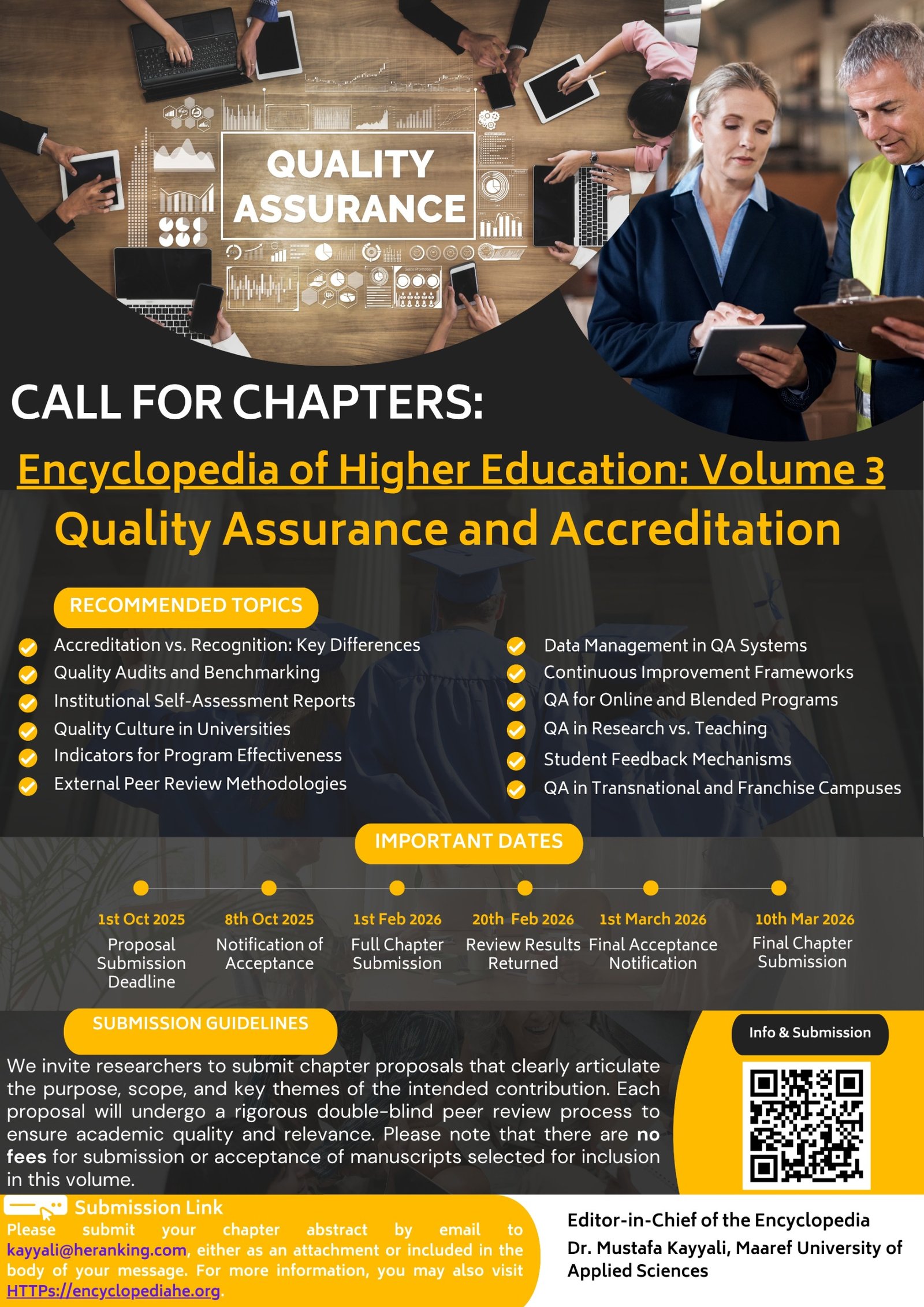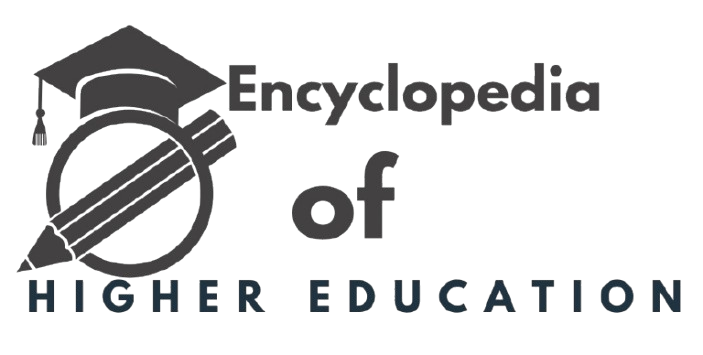Volume 3. Quality Assurance and Accreditation
Overview
This volume examines the evolving landscape of quality assurance (QA) and accreditation in higher education, emphasizing both foundational principles and contemporary innovations. It explores critical distinctions between accreditation and recognition, introduces diverse QA models and benchmarking practices, and highlights the methodologies behind audits, self-assessments, and external peer reviews. Topics range from traditional academic program reviews to QA in online, transnational, and competency-based education, offering insight into both institutional and systemic levels. The volume also investigates emerging themes such as AI in quality auditing, graduate employability as a metric of quality, and ethics in QA agency operations. With a comparative and cross-sectoral lens, the volume captures the global shift toward continuous improvement, transparency, and student-centered outcomes.
Importance and Impact
In an increasingly competitive and complex educational environment, QA and accreditation systems serve as vital mechanisms for ensuring credibility, trust, and academic excellence. This volume provides guidance to policymakers, QA professionals, institutional leaders, and researchers on how to design, evaluate, and enhance quality frameworks that align with global expectations while remaining locally relevant. It addresses not only compliance and accountability, but also how QA can drive innovation, inclusivity, and responsiveness in curriculum and institutional practices. As higher education expands into new modalities and borders, this volume underscores the need for agile, ethical, and forward-thinking QA approaches to safeguard the integrity and future-readiness of universities and learning systems worldwide.
Submission Guidelines
Word Count: 5,000 to 6,000 words
Each chapter should be between 5,000 and 6,000 words, including references. This length allows contributors to develop their argument with sufficient depth while remaining accessible to a global readership.
Language: English
All submissions must be written in clear, academic English. Contributors are encouraged to use inclusive language and ensure clarity for an international audience.
Citation Style: APA (7th edition preferred)
Please follow APA Style, 7th edition, for all in-text citations, reference lists, headings, and formatting. Consistency in referencing ensures academic integrity and ease of cross-referencing.
References: At least 80% published after 2021
To ensure the relevance and timeliness of each chapter, at least 80% of cited sources should be published from 2021 onward. This helps maintain the encyclopedia’s credibility and reflects current research and policy discussions.
File Format: Microsoft Word (.docx)
Submissions must be uploaded in Microsoft Word format (.docx only). This format allows for easier editing, formatting, and review throughout the publication process.
Interested in Contributing?
Researchers and authors who wish to participate in the Encyclopedia of Higher Education project are invited to send their abstract, chapter idea, or full submission directly to: kayyali@heranking.com
Alternatively, you may fill out the following form to express your interest and submit your proposal.

Recommended Topics for Contribution
Authors are welcome to explore any of the following themes—or propose their own original focus aligned with the volume’s scope:
1- Accreditation vs. Recognition: Key Differences
2- Quality Audits and Benchmarking
3- Institutional Self-Assessment Reports
4- Quality Culture in Universities
5- Indicators for Program Effectiveness
6- External Peer Review Methodologies
7- Data Management in QA Systems
8- Continuous Improvement Frameworks
9- QA for Online and Blended Programs
10- QA in Transnational and Franchise Campuses
11- QA in Research vs. Teaching
12- Student Feedback Mechanisms
13- QA for Lifelong Learning Programs
14- Credential Evaluation and Diploma Mills
15- QA Policy Harmonization Across Borders
16- QA in Cross-Border and Dual-Degree Programs
17- Graduate Employability Metrics in Accreditation
18- Institutional Rankings vs. Accreditation Outcomes
19- Quality Assurance for Technical and Vocational Education
20- Academic Program Review Cycles
21- Curriculum Mapping and QA Integration
22- Accreditation in Faith-Based Institutions
23- International Mutual Recognition Agreements
24- Competency-Based QA Approaches
25- Community College Accreditation Challenges
26- Artificial Intelligence in Quality Auditing
27- Ethics and Transparency in QA Agencies
28- QA for Non-Traditional and Lifelong Learners
29- Quality Labels vs. Full Accreditation
30- Impact of QA on Institutional Innovation
